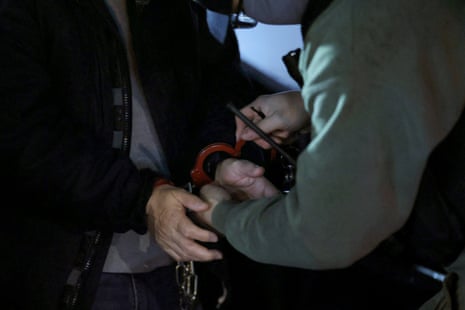Cancer charities back call for prominent warning labels while industry body says move ‘not proportionate’. Cans and bottles of alcohol should carry cigarette-style labels warning that drinking increases the risk of cancer, according to the World Health Organization (WHO). It has said governments should insist that “prominent” warning labels become standard in order to alert consumers to the link between alcohol and cancer and tackle the harm caused by heavy drinking.
Cancer charities welcomed the move and said such labels would overcome the public’s widespread lack of awareness that alcohol is a proven cause of seven forms of cancer. “We know that alcohol causes seven types of cancer, including two of the most common – breast and bowel. Including warning labels would help raise awareness and encourage people to think about how much they drink”, said Malcolm Clarke, Cancer Research UK’s senior prevention policy manager.
The World Cancer Research Fund, which monitors evidence on what lifestyle and other factors increase the risk of the disease, urged governments worldwide to act. Kate Oldridge-Turner, its head of policy and public affairs, said: “Despite the fact that our own evidence shows alcohol is a risk factor for at least seven cancers, it is currently exempt from any mandatory warning labels in most countries. This is of great concern given how few people are aware of the links between alcohol and cancer.
“Clear, highly visible health warning labels increase consumers’ awareness of the risks associated with drinking, and should be standard in Europe and around the world.”. Dr Vivek Murthy, who was the surgeon general in Joe Biden’s administration in the US, made the same suggestion last month. Ireland will become the first country in the EU to compel alcohol producers to put health warnings on labels including a reference to cancer from May next year.
Labels warning about alcohol and pregnancy are already in place in France and Lithuania, while in Germany labels stipulate how old drinkers need to be before they can legally imbibe. Dr Hans Kluge, the WHO’s regional director for Europe, said: “Clear and prominent health warning labels on alcohol, which include a specific cancer warning, are a cornerstone of the right to health because they empower individuals with vital information to make informed choices about the harm alcoholic products can cause.
“Providing this information does not take anything away from consumers. On the contrary, it arms them with knowledge and knowledge is power”. Dr Gauden Galea, a WHO strategic adviser on non-communicable diseases, said such warnings should be highly visible on cans and bottles and not just carried on websites. Governments must “resist all the pressures that will inevitably come from commercial actors” seeking to block the rollout of such labels, he said.
“Alcohol producers often claim these labels are ineffective, yet the way they set themselves against clear, evidence-based warnings tells a very different story,” Galea said. The Portman Group, which represents alcohol producers in the UK, said warning labels would be too harsh a response to problematic drinking and would unsettle people. A spokesperson said: “Whilst we do not dispute the link between alcohol and cancer, and that drinking at harmful levels is dangerous and increases risks, blanket cancer warning labels are not a proportionate policy measure and do not put the risks into an appropriate context. This can create unnecessary anxiety, eroding trust in health advice and alienating the very people who require support.”.
They said most people already drank less than the maximum of 14 units a week recommended by the four UK chief medical officers. Dr Katherine Severi, the chief executive of the Institute of Alcohol Studies thinktank, backed the WHO’s call. “In the UK we’ve got into a ludicrous situation where a bottle of orange juice or milk require more information on their label than a bottle of wine or vodka. Our inadequate regulations have for too long favoured alcohol companies over the health of the public.”.
She said Wes Streeting, the health secretary, should introduce “mandatory labelling requirements that include ingredients, calories, units, the chief medical officers’ drinking guideline and, crucially, health risks such as alcohol during pregnancy and cancer. People have a right to know what they are putting in their bodies.”. The Department of Health and Social Care was approached for comment.































